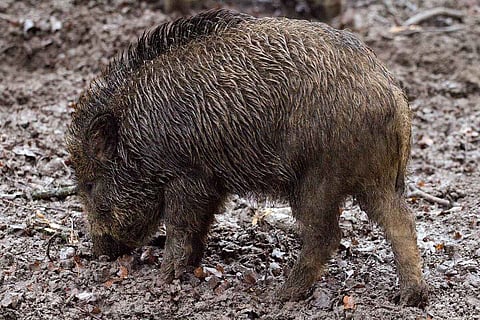

Several wild boars have died in Kerala's Athirapally forest region in the last few days due to an anthrax outbreak, the state government said on Wednesday, June 29. In a press statement issued by the state Health Minister Veena George, she said that the presence of anthrax has been confirmed in wild boars in the Athirappilly forest area.
"Wild boars have died en masse in the Athirappilly forest area. Subsequently, the Health Department, the Animal Husbandry Department and the Forest Department conducted an investigation. Samples of these were tested to confirm the case of anthrax infection," George said in a statement.
She said that the Health Department is taking immediate steps to prevent the spread of anthrax, a bacteria naturally found in soil and commonly affecting domestic and wild animals when they contact it. The Health Department also said that the people who went to remove and bury the carcasses of the wild boars are being monitored. They are also being given the necessary preventive treatment, it added.
The Thrissur administration has said the bacteria was detected in the carcasses of wild boars which were found in Athirappilly village. The Health Department has warned that if animals, including wild boars, are found to be dying en masse, special care should be taken, the health authorities said and asked people not to go to such places. They also requested people to report to the authorities if any such cases are noticed.
The Centre for Disease Control and Prevention states that Anthrax is a disease which is caused by a “gram-positive, rod-shaped bacteria known as Bacillus anthracis”. Bacillus anthracis survives by forming spores, which can be inhaled or ingested by cattle like goats, cows, sheep, horses, mules and the like through contaminated soil, plants or water. These spores may get ‘activated’ when they enter the body, causing them to multiply, produce toxins and cause illness.
Animals are generally vaccinated each year, which immunises that herd. The vaccination is recommended for all animals in any suspected herd that might be exposed to endemic areas as well as those in the neighbouring premises.
(With PTI inputs)